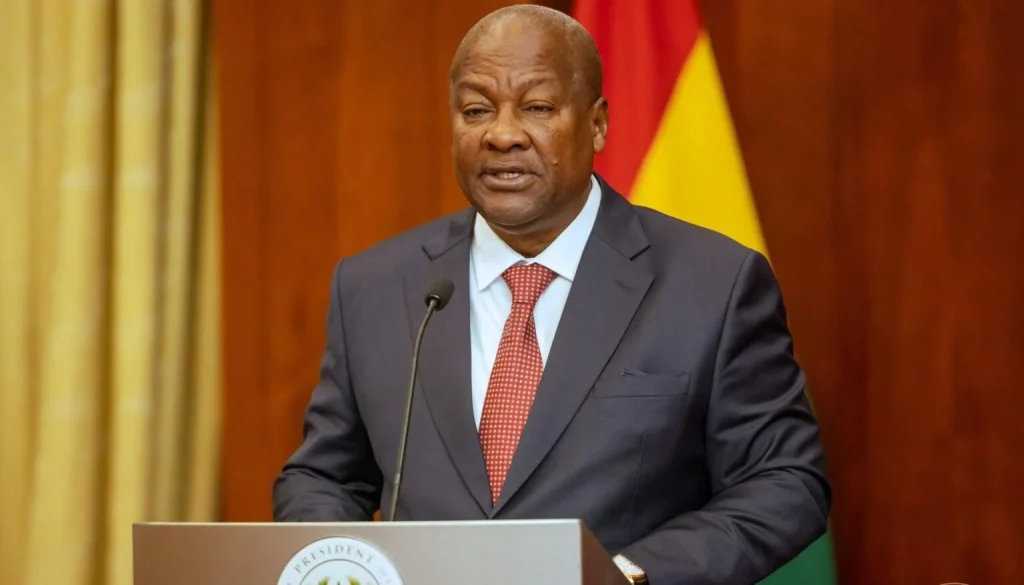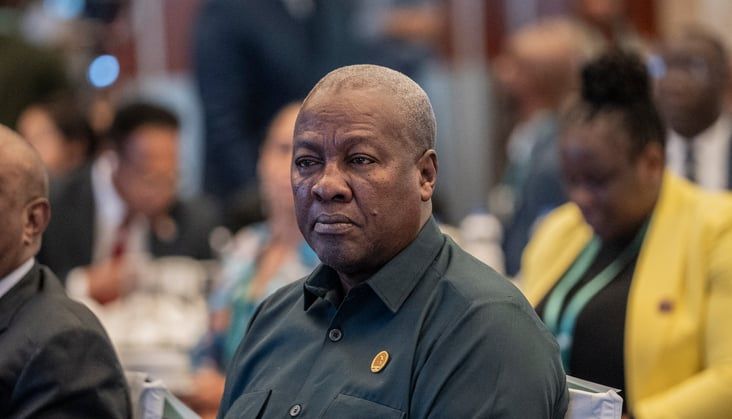Mahama’s Call for Speedy Corruption Trials Gains Praise from Civic Groups in Ghana
President John Dramani Mahama’s recent pledge to fast-track the prosecution of public officials implicated in corruption and financial mismanagement has received strong support from civil society. Edem Senanu, Co-Chair of the Citizens Movement Against Corruption (CMaC), has welcomed the move as a much-needed intervention to restore trust in Ghana’s public institutions.
Mr. Mahama made the statement while reacting to findings in recent Auditor-General’s reports, which have repeatedly cited financial irregularities in several public sector institutions. He announced his intention to collaborate with the Chief Justice, the Attorney-General, the Minister of Justice, and other key legal stakeholders to ensure that officials involved in the misuse of public funds face timely prosecution.
Civic Leader Applauds Mahama’s Commitment
Reacting to Mahama’s announcement, Mr. Edem Senanu described the initiative as an important and practical step toward strengthening accountability mechanisms in the country.
“I believe this is commendable. For years, the public has witnessed the Public Accounts Committee (PAC) of Parliament reviewing damning audit reports with little to no action afterward. These recurring infractions, without enforcement, send the wrong signal and weaken our fight against corruption,” Mr. Senanu stated.
He stressed that the absence of legal consequences for financial misconduct has created a culture of impunity within the public service. According to Senanu, the former president’s intention to work with judicial institutions could help reverse that trend.
The misuse of public funds has long plagued Ghana’s development agenda. Each year, the Auditor-General uncovers substantial losses to the state due to unauthorized expenditures, procurement breaches, and unaccounted funds. However, enforcement remains weak, and recovery of lost public money is minimal.
Tackling these systemic issues is crucial for Ghana’s economic stability and governance. Experts say that unless audit findings are followed by legal action, the deterrent effect of oversight bodies like the Auditor-General’s office and PAC will remain limited.

In its 2024 report, the Auditor-General revealed that over GHS 1.2 billion in irregular expenditures had been recorded across various government departments and agencies. These included disbursements without documentation, uncompetitive procurement processes, and misapplication of statutory funds.
Despite the magnitude of these findings, only a few cases are investigated thoroughly, and fewer still result in prosecution or the retrieval of misused funds. A 2023 policy analysis by IMANI Africa found that less than 10 percent of audit recommendations made over the previous five years had been fully implemented.
This lack of accountability has eroded public confidence in the effectiveness of state institutions meant to protect the public purse.
A notable example of unaddressed financial mismanagement is the 2019 audit of the Youth Employment Agency (YEA), which uncovered questionable transactions amounting to over GHS 17 million. Although investigations were initiated, the matter has since faded from public attention, and no high-profile prosecutions have taken place.
Cases like this have become symbolic of a broader failure to translate audit reports into tangible consequences. Civil society organizations have consistently called for stronger political will and institutional coordination to end the cycle of impunity.
President Mahama’s proposed collaboration with the Chief Justice and the Attorney-General could offer a pathway to closing the gap between audit findings and legal action. According to governance analysts, if effectively executed, this initiative could reduce corruption, increase public trust, and improve Ghana’s international image as a democratic state committed to good governance.
However, critics caution that promises alone are insufficient. Successful prosecution of corruption cases requires adequate resourcing of investigative bodies, judicial independence, and sustained political will across administrations.

As Ghana heads toward the 2026 general elections, the issue of corruption and public accountability is likely to remain high on the political agenda. Voters are expected to closely assess the records and pledges of political parties regarding the protection of state resources.
Analysts suggest that Mahama’s recent statement may be part of a broader strategy to position himself as a reform-oriented leader ahead of the elections. Whether these proposals gain traction could influence voter confidence and shape the national conversation on governance.
While the praise from civil society reflects optimism about Mahama’s stated intentions, the true measure of progress will depend on follow-through and structural reforms. Strengthening legal processes, ensuring prosecutorial independence, and fostering a zero-tolerance culture toward corruption are essential for meaningful change.
Ghanaians will be watching closely to see whether these pledges translate into action that holds officials accountable and recovers misused public funds.
Read also: Ghana to Blacklist Fraudulent Mobile Devices Through New CEIR System to Curb Digital Crime

